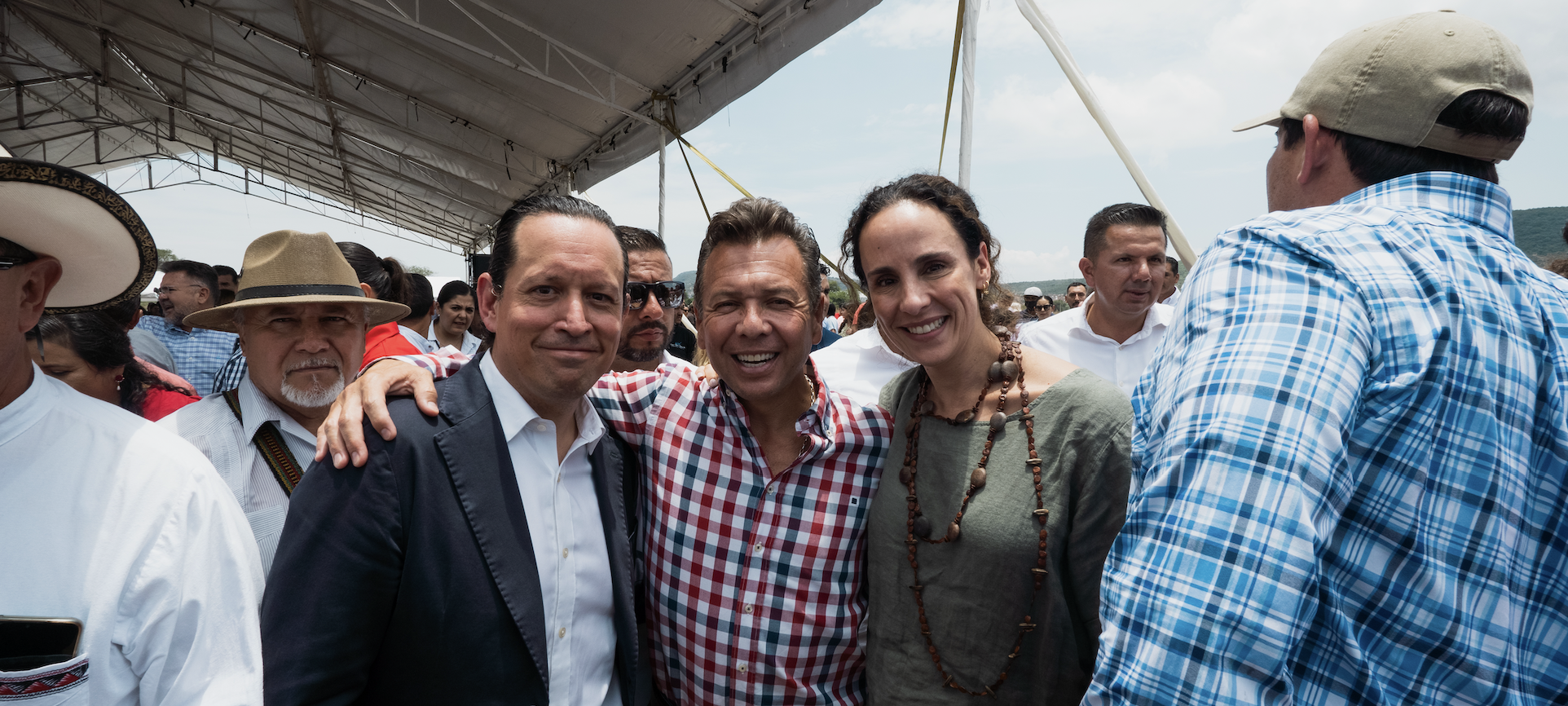De alquilar a ser propietario: el viaje de Esmeralda hacia la propiedad de una vivienda
Después de diez años alquilando en Etzatlán, México, Esmeralda ahora se encuentra en una sala de estar de su propiedad.
Los líderes gubernamentales están reconociendo que los enfoques innovadores e impulsados por el mercado pueden escalar más rápido y de manera más sostenible que los métodos tradicionales.

Algo extraordinario ocurrió recientemente en Jalisco, México. El gobernador Pablo Lemus Navarro hizo una visita simbólica a un proyecto de viviendas en Jamay para respaldar una solución basada en el mercado que permite a las familias ser propietarias de tierras y viviendas.
Su presencia, junto con los alcaldes locales, señala un cambio en la forma en que los líderes gubernamentales ven el desarrollo de viviendas asequibles. Están reconociendo que los enfoques innovadores e impulsados por el mercado pueden escalar de manera más rápida y sostenible que los métodos tradicionales.
Las cifras cuentan una historia de aceleración espectacular:
Esto confirma que las soluciones basadas en el mercado pueden funcionar para las familias desatendidas cuando se diseñan correctamente. La demanda es abrumadora: más de 1000 familias ya están interesadas en un posible proyecto llamado «Jamay 2".

Los proyectos más exitosos se centran en ciudades pequeñas y medianas con poblaciones de entre 20 000 y 100 000 personas. Estas comunidades ofrecen tres ventajas clave:
En lugar de competir con los costosos mercados urbanos, este enfoque crea nuevas oportunidades en comunidades ignoradas donde las familias realmente pueden permitirse acumular riqueza a través de la propiedad de la tierra.
Quizás lo más importante es que estos proyectos nos posicionan como lo que uno de nuestros donantes llama una «capa de confianza» entre las familias vulnerables y las oportunidades de mercado asequibles. En un país donde los malos actores han hecho que las familias se muestren escépticas ante los nuevos programas, la confianza lo es todo.
Cuando las familias ven una comunicación transparente, precios justos y que los vecinos realmente reciben títulos de propiedad, el escepticismo se transforma en demanda. Cuando los alcaldes son testigos del desarrollo económico en sus comunidades, se convierten en defensores. Cuando los inversores ven rentabilidades sostenibles junto con un impacto social, comprometen capital a largo plazo.
El respaldo del gobernador representa un nuevo modelo de participación del gobierno, no como el principal financiador o desarrollador, sino como un catalizador que ayuda a que las soluciones innovadoras crezcan. Su equipo ahora está explorando la mejor manera en que el estado puede apoyar los enfoques basados en el mercado que ya están demostrando ser exitosos.
Este cambio reconoce una idea crucial: el 54.3% de los trabajadores mexicanos en la economía informal no son problemas que se resuelvan a través de la caridad, sino que son clientes con un poder adquisitivo real que merecen opciones reales.

Los indicadores económicos más amplios respaldan este optimismo. A principios de 2025, se anunciaron 55 nuevos proyectos de inversión por valor de más de 30 800 millones de dólares. Se prevé que el sector inmobiliario comercial, valorado en 53.600 millones de dólares, crezca un 7,23% hasta 2033.
Más importante aún, los proyectos exitosos están inspirando la replicación. Alcaldes de otros municipios asistieron a la visita del gobernador, deseosos de entender cómo pueden llevar desarrollos similares a sus comunidades.
Los enfoques de vivienda tradicionales miden el éxito en las unidades construidas. Este nuevo modelo mide el éxito en las familias empoderadas, las comunidades transformadas y los sistemas cambiados. Cuando una familia pasa de arrendataria a propietaria de la tierra en 24 meses en lugar de en más de 10 años, cuando las mujeres obtienen el empoderamiento económico a través de la propiedad, cuando comunidades enteras obtienen la infraestructura esencial, ese es el impacto que se agrava.
La crisis de la vivienda sigue siendo enorme, pero el impulso está aumentando. Cuando los líderes gubernamentales, los desarrolladores innovadores y las familias decididas trabajan juntos a través de soluciones basadas en el mercado, no solo construyen casas, sino que construyen caminos hacia la prosperidad que pueden transformar regiones enteras.
El desafío inmobiliario de México finalmente está cumpliendo su objetivo: soluciones que reconocen la dignidad y el potencial de cada familia, respaldadas por líderes dispuestos a aceptar el cambio.
Suscríbase a nuestro boletín